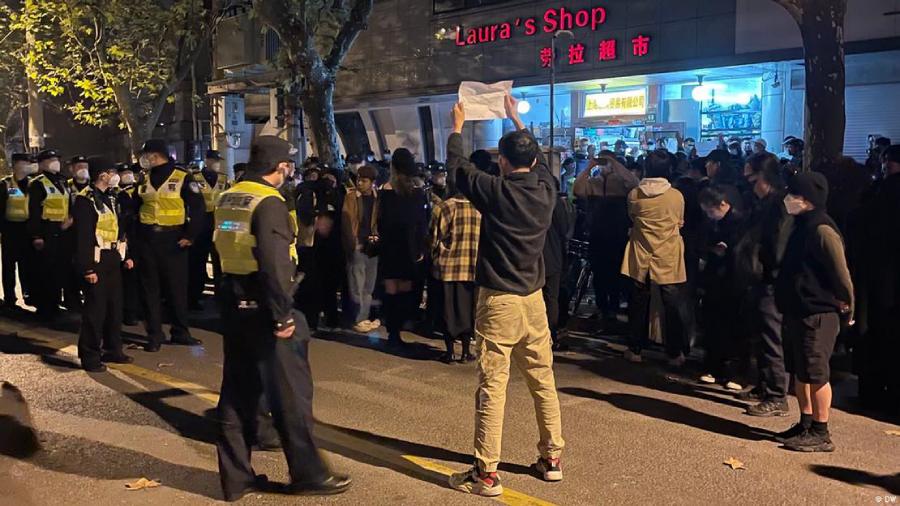In the southern Chinese city of Guangzhou, residents returned to work on Thursday for the first time in weeks after Covid-19 lockdowns were lifted.
In Chongqing, in the southwest, some residents were no longer required to take regular Covid tests. And in Beijing, a senior health official played down the severity of current Omicron variants, a rare move for the government.
The developments suggest that the ruling Communist Party may be starting to back down on unpopular Covid restrictions in response to a wave of mass protests that have been the most widespread challenge to Beijing in decades.
When protesters rallied in a dozen cities over the past weekend, fuelled by anger over the country’s strict lockdowns, Beijing initially responded with security measures focused on rounding up protesters and deterring others from taking part in gatherings.
Now the party is also, to some extent and in some places, signalling a willingness to address the root cause of the public anger: intrusive pandemic controls that have stifled economic growth and left millions of people confined in their homes for long stretches and set off violent clashes as recently as this week.
The party has still not publicly acknowledged the widespread demonstrations against lockdowns, but top security officials have warned that the authorities would crack down on “criminal acts that disrupt social order.”
The policing measures have mostly muted the protests for now, but the need to tamp down public discontent has grown more urgent with the death of Jiang Zemin, a former President, whose passing on Wednesday could inspire more people to demonstrate against the government. Easing China’s exceptionally stringent Covid measures could help assuage public anger.
But it is unclear how far the party would be willing to go or if any such shift is being led by Xi Jinping, China’s leader, who has been the chief enforcer of the country’s “zero Covid” policy. Xi has staked the party’s legitimacy on controlling the virus better than other countries, especially its geopolitical rivals in the West, and any reversal or abandonment of the policy could undercut his authority.
Even as Sun Chunlan, the vice-premier overseeing pandemic efforts, acknowledged this week that the danger that Omicron variants posed was waning, lockdowns continued to be in place in many parts of the country.
At least one city in the country’s northeast, Jinzhou, said on Thursday that it planned to maintain lockdowns for several more days because “it would be a shame not to eradicate cases if they can be eradicated”!
The pushback from places like Jinzhou points to the challenge that Beijing might face in trying to unwind the heavy-handed approach that had until just this week seemed immovable.
In Sun’s remarks to health officials, carried by the state media, even the phrase the party uses to describe its policy, “dynamic zero Covid”, was notably absent.
Speaking at a symposium at the National Health Commission on Thursday, Sun said for the second time in two days that the country was entering a new phase in its campaign against the virus.
“After three years fighting against Covid, our medical and disease control system has met the challenge,” Sun said.
New York Times News Service










